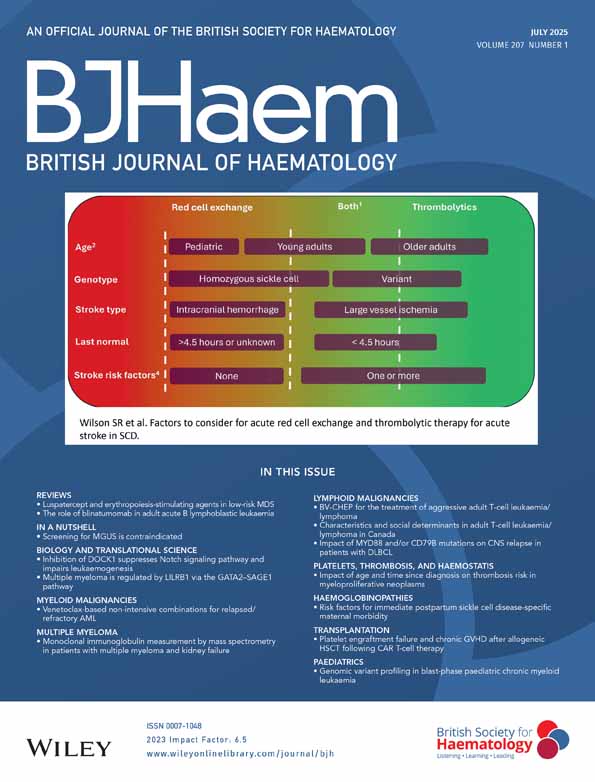Interleukin-4 prevents spontaneous in-vitro apoptosis in chronic lymphatic leukaemia but sensitizes B-CLL cells to melphalan cytotoxicity
Abstract
The effect of IL4 on cell viability, cell growth, apoptotic fraction, melphalan-induced cytotoxicity and the degree of interstrand DNA cross-linking after alkylating agent exposure was investigated in peripheral blood B-cell chronic lymphocytic leukaemia (B-CLL) cells obtained from 10 patients suffering from chronic lymphocytic leukaemia and in B lymphocytes from five normal individuals. The addition of IL4 to culture medium maintained in-vitro viability and decreased spontaneous in-vitro apoptosis in both B-CLL cells and normal peripheral blood B lymphocytes. IL4 did not, however, stimulate proliferation of either cell type. IL4 sensitized alkylator-resistant B-CLL cells to the cytotoxic effects of melphalan (l-phenylalanine mustard) but had no influence on melphalan-induced cytotoxicity against normal B lymphocytes. The enhanced cytotoxicity against B-CLL cells was accompanied by an increase in the amount of interstrand-DNA cross-linking in these cells following short-term exposure to melphalan.




